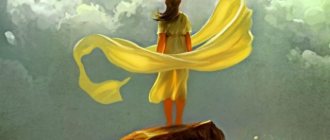One of the main values is the right to manage your own life. Some believe that it is given from birth. Others think it should be given after reaching adulthood. Still others generally regard independence as a privilege for a separate group of people, based on gender, social or other characteristics. There is no clear answer to the question of what freedom is from the standpoint of morality, ethics, philosophy, legislation or social norms. There is only a generalized concept and a large number of interpretations, depending on from what point of view we view it.
Who is a free person?
A free person is one who has the right to certain behavior enshrined in the Constitution of his country. This is from a legal standpoint. We are talking about regulated freedom. The more developed a country's democracy, the more rights its citizens have.
From an ethical point of view, human freedom is expressed in his ability to express his will. But, in this case, it is appropriate to talk about morality, when the will of one may negatively affect someone else. This means that people still have responsibility to society. Philosophers are the most democratic. Their definition of freedom resembles that at the beginning of this article, without reference to legislation or a sense of conscience. On the other hand, the possibility of uncontrolled behavior raises a number of moral and ethical questions, making the concept of “absolute” freedom a utopia.
It is most correct to talk about the possibility of freely performing certain actions if they do not pose a threat to the life or health of other people or do not infringe on their honor and dignity. Otherwise, those around you are also free to use their actions to prevent someone from immoral behavior. It turns out to be a vicious circle.
Take a personality type test
How to understand your own freedom
You can determine personal freedom by honestly answering five questions to yourself:
Am I an independent person? Can an individual independently develop, learn and experience new things, does he stop at the achieved result, does he move forward. Am I doing what I love, a hobby, so that it becomes a source of permanent income? A person is successful when everything in life is filled with love, especially work. If a person does a job he doesn’t like, he is definitely not happy. But an unhappy person does not gain freedom, because he is “chained” by necessity or want. Is my thinking free from outside influence? Can an individual think independently, regardless of circumstances and other people? Do I read a lot of books? Books are an excellent source for development. You can start with books on self-development; you can comprehend the biographies of famous people who achieved success during their lifetime. This will not add freedom, but it will tell you in which direction to move. Am I in control of my emotions, thoughts and feelings? A person who feels and at the same time is his own master is free.
A free person does what she likes, what she wants. Such a person stands out from the crowd, she is not like others, because she lives according to her own specific program, which is not imposed by strangers.
How to become free?
If we are not talking about extremes, then the possibility of unhindered expression of will is extremely important for everyone. Even if circumstances take away freedom of movement, no one can deprive you of the opportunity to dream and think. In his head, everyone is as free as his worldview allows him.
There are a number of practical recommendations that help you become independent.
Free your mind.
The most terrible thing is the shackles that restrain the mind. A free person is, first of all, a person devoid of stereotypes, open to understanding his inner world. It is appropriate to recall the saying about the dream of a slave - “a market where you can buy yourself a master.” An extreme form of enslavement, when the individual cannot even imagine something better. If someone decides to become freer, then this path should begin with their thoughts. Believe in freedom yourself, and then achieve it.
Understand what prevents you from being free.
When a person has already embarked on the path of his internal liberation, first of all, he needs to understand what makes him dependent. These factors include:
- Fears, uncertainty, complexes;
- Other people's opinions, social stereotypes;
- Dependence on financial well-being;
- Inability to make decisions independently.
Independence, being our right, sometimes requires decisive action. She appears in the fight. First of all, with yourself.
Conquer your internal barriers.
Fears, insecurities, and complexes are firmly rooted in almost everyone. They are the product of past failures. And not only their own, but also their own family. Sometimes parents, having not achieved something in their lives, begin to program their children for failure, developing in them many complexes. This becomes the first barrier to personal freedom.
Take a character test
Be sincere to yourself.
It is worth respecting the opinions of other people, but it is not advisable to follow them thoughtlessly. Parents, grandparents, friends, comrades, colleagues can sometimes suggest the right things. But, everyone has their own life and how to manage it is an individual choice. This is personal freedom. Before “turning on” the rebellious spirit, defending your opinion, it is worth, first, developing this opinion. Be an individual, with your own views, desires, and needs. If you just follow the rules of the majority, you may never become your true self.
Stop chasing money.
Money is very important in this world, but very often it becomes a trap from which it is difficult to get out. In pursuit of profit, people risk becoming its hostage. This does not mean that you necessarily need to give up financial well-being and devote yourself to being a hermit. Simply, choose a job, earn extra income, or open your own business, preferably in the area that arouses the greatest interest and positive emotions.
Learn to make decisions on your own.
A serious problem that prevents many people from gaining their independence is the fear of independence. One of the reasons is ignorance, which holds people like real shackles. Very often, someone becomes dependent on others only because they do not know any other way. By learning more about the laws of the world around us, understanding their own capabilities and rights, people receive the most powerful weapon in the fight for their freedom. Fear usually appears in response to misunderstanding. Thus, expanding your worldview can open up freedom, thereby taking the first step towards it.
In addition, practice is an important stage in the development of independence. If you don’t start doing something and decide for yourself, then how to become independent? Of course, failures are not excluded, but those who do nothing are doubly mistaken. After all, human freedom is the realization of his will. The very word “realization” implies activity.
The question of what freedom is can be pondered for years. This is everyone's right. But, in addition to thoughts, it is advisable to implement it in life. If you want to be free, be it! There are a number of barriers along this path, but most of them are in the head. Therefore, the first step towards your liberation can be considered positive thinking and an active life position.
Take the test: child, adult, parent
The meaning of the word "free"
, -th, -oe; -den, -dna, -bottom.
1.
One who is not a slave, a serf.
Free and serf peasants.
□
A Negro slave who sets foot on English or Russian soil becomes a free person.
Chernyshevsky, Politics.
| in meaning noun free
, wow,
m.; free
, oh,
well. Freeman and slave, patrician and plebeian, landowner and serf, master and apprentice, in short, oppressor and oppressed were in eternal antagonism to each other.
Marx and Engels, Manifesto of the Communist Party.
2.
Not knowing oppression, exploitation, enslavement, enjoying freedom (in 3 meanings).
The East is burning, all of it is burning, and the time is near when it and the colonies will turn into a free country.
Furmanov, In the land of cotton.
You have broken the heavy chains of political and economic slavery.
You are already free people. M. Gorky, [Speech at the ceremonial meeting of the plenum of the Tbilisi Council].
|| Characteristic of a country, of people who do not know oppression, exploitation, or enslavement. A happy, prosperous life, free creative work in the family of the Soviet socialist republics radically changed the spiritual appearance of the people.
Fedorovich, Face of the Desert.
3.
Free, not imprisoned.
[Semyon:] Go to him.
He's free. He turned out to be innocent of what he was accused of. Svetlov, Twenty years later.
| in meaning noun free
, wow,
m.; free
, oh,
well. There is no industry in which, in a conflict of interests, the free would not prevail over the exiled.
Chekhov, Sakhalin Island.
4.
Independent, disposing of himself at his own discretion, not associated with anyone in any way.
obligations, relationships. “I know that I am free and no one has the right to demand an account from me.
I. Goncharov, Break.
Mr. Naletov does not serve anywhere and is completely free.
Ch.
Uspensky, Modern wilderness. “You say it yourself: she has a child.”
That means the husband... Are there really not enough girls available? L. Linkov, Bitter Truth.
|| in what
and
with undef.
Having the right or opportunity to act according to one's own will or desire.
Travel is not subject to the ferula of rhetoric, and the writer is free to wade into the depths of the mountains or descend into the depths of the oceans.
I. Goncharov, Frigate “Pallada”.
If I had been free in my actions, I would not have taken the exam anymore.
L. Tolstoy, Youth.
|| Done of one’s own free will, desire, without coercion. [Karandyshev:] Let strangers at least think that you love me, that your choice was free.
A. Ostrovsky, Dowry.
5.
Not knowing, not tolerating barriers, limits, restrictions.
Love is free.
There is no barrier in the world that would stand in her way. Fet, Gafiz is killed.
A person needs not three arshins of land, not an estate, but the entire globe, all of nature, where in the open space he could demonstrate all the properties and characteristics of his free spirit.
Chekhov, Gooseberry.
Free thought and scientific audacity broke their wings against the ignorance and inertia of the tsarist political system.
A. N. Tolstoy, Motherland.
|| only full
f. Not limited by certain norms, rules, forms.
Free verse.
Free form designs. Swim freestyle. □
The distance of a free novel I have not yet clearly discerned through the magic crystal.
Pushkin, Evgeny Onegin.
6.
Unfettered by restrictions, prohibitions, unhindered.
Free elections.
Free trade. Free exchange of opinions. □
[Korchagin] finally received the desired right to freely view books.
N. Ostrovsky, How the steel was tempered.
7.
Done easily, without obstacles or difficulties.
Free breathing.
□
The successful experience gave him confidence, his speech became even more precise and free, and his intonation became even firmer.
Nikolaev, Harvest.
|| Not tense. Loose fit in the saddle.
□
Tartakov's voice was a lyric-dramatic baritone - very large, sonorous, smooth and free at the top.
Stark, St. Petersburg Opera and its masters.
8.
Not feeling awkward or embarrassed;
casual. The master is embarrassed in front of the servant, the servant is embarrassed in front of the master;
Only with an equal is a person completely free. Chernyshevsky, What to do?
|| Overly casual, somewhat cheeky; free. [Vozhevatov:] The young lady is pretty, plays different instruments, sings, her manner is free, and that’s what pulls her off.
A. Ostrovsky, Dowry.
9.
Not filled, not occupied by someone or something.
Free space.
Free compartment. Free chair. □
The sky, clear of clouds, promised a windy day.
Wanderer, Shackles.
Reconnaissance established an enemy concentration in the area of the village of Sanshina, in an area free of forest.
Fedin, Cities and years.
|| Not filled by anyone, vacant (about a position on the staff of an institution). Free bet.
□
Sometimes acquaintances, when meeting, tell us where they have been, what the voyages were like, and report on vacancies on good ships.
Novikov-Surf, The Sea is Calling.
|| Razg.
Not currently in use or use.
The phone is free.
Free money. □
— Girls, who has a free pencil?
Nikolaev, Harvest.
|| Not filled with any labor, deed (about time). On free evenings, Evgeniy Petrovich used to tell Seryozha fairy tales.
Chekhov, At Home.
Terenty, in his free time from field work, traveled from Stodnev as a cab driver.
Gladkov, A Tale of Childhood.
|| Not busy with smb. labor, business, having leisure. [Eulalia:] Come to me when you are completely free, when you have no business, no occupation.
A. Ostrovsky, Slaves.
The off-duty engine crew, electricians and sailors gathered here.
Krymov, Tanker "Derbent".
|| from what
and (
obsolete) what.
Delivered, freed from smth.;
not knowing something The house is free of occupancy.
A person free from prejudice. □
- Do you recognize me as finally free from suspicion?
Dostoevsky, Crime and Punishment.
And I dreamed, already free of the sad vanity of the past, In another soul, with my kindred, To reconcile sad dreams.
Blok, Everything is more endless, everything is more crystalline.
10.
One where there is no crowding;
spacious. Large and free apartment.
□
And, already standing, quietly, with the end of his muzzle, Count [the dog] moved the upper end of the broken bar to the left.
The gap came out wide, free, wider than his chest. Sergeev-Tsensky, Grif and Count.
11.
Not tight, not tight-fitting (about clothes, shoes).
The ladies changed into some very loose dresses, like hoods.
M. Gorky, Evening at Sukhomyatkin's.
Korablev appeared on the day of his arrival - smartly dressed, with a neatly curled mustache, in a loose embroidered white shirt.
Kaverin, Two captains.
12.
only full.
f. Specialist. Not transmitting movement to other parts of the mechanism, freed from clutches, from load, idle.
Free gear.
Freewheel. 13.
only full.
f. Specialist. Not in chemical combination with smth.
Free oxygen.
◊
Free fall of a body
(
physical
) - movement of a body that occurs only under the influence of gravity.
Free profession
(
obsolete
) - the profession of a mental worker who is not in the service and lives on the fee he receives.
Free kick
- in football: a kick during which the opponent has no right to attack.
Free artist
- in pre-revolutionary Russia: 1) a title awarded to persons who graduated from the Academy of Arts with a small silver medal;
2) the title of a musician with a higher musical education. Allow me to be free
- in military usage: an appeal to a senior in rank with a request for permission to leave, to leave.
Basic principles of a harmonious life:
- We choose our own lives - every day we have many opportunities and roads in front of us, and only we make decisions ourselves: how to act, react, what to say. Taking responsibility for your life makes it possible to feel your strength. A person is stronger than circumstances until they influence him. And positive thoughts and actions help to attract success and achieve what you want.
- The ability to live now, to enjoy life - a free person living in harmony, knows how to live slowly, feeling every moment. It is useful to walk slowly, looking at plants, peering into the distance, and not constantly running, being late for the bus. It is also better to eat food, as in a restaurant, savoring the food, relaxing, enjoying the moment. Life is short, so why not allow yourself more joy? Live it at the highest level. Yes, the speed of life does not always allow you to take breaks, but they are necessary; during breaks between work you can go out, get distracted, look at the world with a fresh look, feel the moment, joy, and forget about worries.
- The method of “switching”, self-regulation - to increase concentration and vital energy, it is useful to remember childhood or youth, the peak of energy, the state of success and joy, health. Immersion in pleasant memories evokes the necessary state of mind, inner mood. Pleasant pictures of the past or music that evokes positive associations also help to switch. (“Key method. Unlock your capabilities” Kh. Aliyev.)
- Refusal of negative attitudes - a harmonious personality does not accumulate complexes or negative attitudes. It is important to learn to find advantages in yourself, use your strengths as much as possible, and find advantages in your weaknesses. Even people with physical disabilities and disabilities can be happy. It all depends on the inner feeling of the world, the ability to see the bright side of events, and the presence of fortitude. Giving up worries about the future and past will help you live in the present and fill your life with meaning. Most experiences are vain and groundless, no one knows the future, and the past is already part of history, bringing only experience and wisdom.
- The ability to love oneself and life - a free and harmonious person accepts himself, understands, is open to the world and life. She does not wait for gifts of fate, the love of others, but she herself brings light and warmth - she knows how to support, understand, share joy and bitterness. Such people radiate love, kindness, attract good circumstances, become the life of the party, best friends.
- A healthy body means a healthy mind - light physical activity increases vigor, improves overall health and mental stability. People who are fond of sports suffer less from stress and anxiety. Sport is a great way to release negative energy, switch to another productive wave, and increase overall energy. Even walking or running significantly improves your health and state of mind.
- Having inner strength is a guarantee of a happy, harmonious life. A person’s inner freedom is the ability to be strong and confident, which does not allow one to succumb to manipulation. A harmonious person lives by his own judgments, does not follow the lead of others, and strives for his own goals. A free person does not impose his ideas, but knows how to resist pressure and is immune to influences and opinions.
- The ability to forgive - a harmonious and free person does not accumulate resentment. For what? There are more important things to do than to be offended by someone and try to sort things out. There is a lot of beautiful and interesting things in the world, there are things to do and goals. Resentment takes away peace and leads to diseases and neuroses. It is important to be able to forgive yourself and others. Everyone has the right to make mistakes. Let go of grudges and move on with your life. Often people who criticize and blame themselves are unhappy and have lost peace.
- Independence - to gain spiritual peace and joy, it is useful to develop your own assessment of life and actions. We often wait for the approval of society, the support of others, but it is more reliable to rely on ourselves, to be able to notice good actions and achievements. Man himself is his own salvation, he can elevate and overthrow his achievements. It is important to notice progress, successes, and mentally rejoice at every step forward. You shouldn’t even expect gratitude, just do good deeds.
- Striving for dreams - for harmony it is important to be able to dream and set goals. Our ideas and aspirations are signals from the subconscious; we can achieve more if we put in the right effort. Most desires can be realized if you put aside fears and prejudices. It is important to learn to believe in yourself and follow your dreams. You can learn to sing, dance or play musical instruments at any age, master a new profession, and open up opportunities. The main thing is to think about how to realize your dreams, where to apply your abilities and talents? Inner freedom of a person is an achievable state that is compared to “reasonable egoism.” A person lives by his own interests and ideas, without harming himself or society. Quite the opposite - it helps, inspires, and is an example for others who have not yet found freedom. We wish everyone to find inner freedom and harmony in life!
In the dictionary D.N. Ushakova
FREE, free, free; free, free, free. 1. Not constrained, not experiencing external coercion, independent, independent, enjoying freedom (see freedom in the 2nd meaning), free. Free citizens of the great Soviet country. Free Soviet people. Free country. Free labor. Free life. Free press. Free art. Free speech. Free thought. Free choice. "The illustrious creator of free verse." Fet (about Pushkin). “Their prophetic language is truthful and free and friendly with the will of heaven.” Pushkin. “Farewell, free elements! for the last time you roll blue waves in front of me.” Pushkin. “Didn’t you, at first, persecute his free, bold gift for so long?” Lermontov. “There is joy in free speech.” Nekrasov. 2. Disposing of oneself at one’s own discretion, not depending on anyone or anything. I am a free person. “Free, widowed, I am my own master.” Griboyedov. “Forever cold, forever free, you have no homeland, you have no exile.” Lermontov. (“Clouds”) | ·more often ·briefly, with ·inf. Having the right, the ability to do something at one's own discretion. You are free to think about it however you like. You are free to decide in your own way. Free to wipe whatever you want. 3. prem. ·briefly At large, not in custody, released. 4. Unconstrained by restrictions, prohibitions, unhindered. “Each Union Republic retains the right to freely secede from the USSR.” Constitution of the USSR. Admission is free (i.e. no tickets). Free access. Free passage. Free love (used to denote relationships that are not constrained by any norms, turning into debauchery; obsolete). Free trade. | One whose use is not associated with restrictions. Free sea. 5. Relaxed, not embarrassed. Free circulation. Too free behavior. “Free gestures. “Whatever you want,” she said humbly and freely.” Pushkin. ***** (adv.) will flow.” Pushkin. He speaks French fluently (adv.). Freely (adv.) translates. Free reading of the author in the original. 8. Empty, not occupied, ready to be used. There are many empty seats in the carriage. Take a free table in the dining room. There was a free leaf in the notebook. Free dishes. The phone is free, speak up. Free space. 9. To be filled with, not busy with work, business (about time). I don't have a single free minute. In your free time, do some reading. Free day. “He gives me all the time he has free.” Chernyshevsky. 10. more often ·short. Having time, leisure, freed or freed from any duties or activities. I'm free all evening. He is a very free person. When *****
Harmony in human life
Harmony within oneself is the highest art, the ability to generate happiness, to remain calm in difficult situations.
Inner freedom is the awareness of the need to restore order in one’s soul; no one but a person can make him happy and free. Why do we feel a lack of freedom - conditions and way of life, restrictions of society, the opinions of parents and others? A feeling arises: you need to fight for freedom, defend the right to live by your own principles. The result is stress, neuroses, depression, anxiety.
What should I do? Stop proving, just live, everyone has their own truth, it is impossible to be good to everyone. Of course, it is difficult to abstract yourself from family and friends who can dictate their terms, propose or impose a solution to the issue. Politely thank you for your help, explain your choice, and in time they will understand. Often parents try to make their dreams come true with the help of their children, offering their ideals, while each person, an individual, should be able to choose a path in life.
How do people protect their inner freedom? There are several reactions - protest, evidence, counterarguments, refusal to cooperate. Feeling external pressure, the desire to impose an opinion, there is often a desire to challenge one’s position, to prove the opposite, to convince, we often strive to avoid influence, to refuse the help of an annoying salesman or relative.
Over the years, a realization comes: a person takes into account only information that is close to him and understandable. He rejects everything that is against his position in life, so disputes often end unproductively, everyone remains with their own opinion. A free person does not strive to prove his truth to every barking dog, but acts according to his ideals.
Personal harmony is associated with the ability to understand oneself, accept one’s pros and cons, and abandon self-criticism and accusations. We can make mistakes - this is normal, the main thing is to have a basic line of behavior. A confident person rarely doubts for a long time, knows what he is striving for, what brings joy and positive emotions. The barometer of happiness and correctness of actions is our internal state. When we act badly, we feel remorse. Good actions, results, interesting activities evoke enthusiasm and inspiration.
It would seem that everything is simple: you need to live according to your conscience and use your will to achieve your goals and realize your life mission. However, there are also emotions that interfere with happiness and peace of mind. Negative emotions include: resentment, anger, aggression, envy, despair. How can you learn to get out of a negative state and fill yourself with positive energy?
Harmony in the soul and life is impossible without self-regulation, the ability to manage emotions and thoughts. Usually we think that circumstances are the cause of emotions: disappointment, sadness, sadness, anger. But if you look closely, different people react in different ways to similar situations, which means we can choose emotions, a way of reacting. How? Controlling thoughts, directing them in the right direction.
In case of feeling negative emotions, it is worth understanding the reason for their occurrence, why do I think that this situation is worthy of sadness? What do I think about this? You can even write down your thoughts and perform an analysis. Most likely, internal attitudes and a negative attitude prevent you from objectively assessing the situation and seeing advantages and opportunities. It is important not to give in to emotions, but to make a decision - what is useful and what is harmful. Negative emotions undermine peace of mind and cause diseases on the physical level (Louise Hay). Therefore, experiencing anger, sadness, and envy is, at a minimum, harmful to health. It is better to cultivate acceptance of life, people, love for yourself and the world around you. Positive emotions give strength, inspiration for new achievements, and a feeling of happiness.
It is difficult to avoid negativity, but it is important to learn how to transform it into other energy. The following algorithm will help:
- Realize the harmfulness of emotions - why do they help or hinder solving the issue? Understand the cause of the occurrence (thoughts preceding the appearance of an emotional reaction).
- Find a refutation of negative thoughts, evidence of their groundlessness, adjust your consciousness to a different wavelength.
- Use “anchors” that improve your mood: music, a walk, communication, humming a song. Everyone has their own ways of influencing mood.
- Feel a neutral state first, and later a positive attitude towards life.
A person’s inner freedom is the ability to maintain a calm state of mind, refuse to take negativity to heart, and not allow external circumstances to disturb peace. Everything is fine, everything is going as it should. You can always find a way out, a solution. Calm, just calm.
Emotions and logical thinking often come into confrontation - it is impossible to worry and think at the same time. It’s better to turn on logic and turn off harmful emotions so that they don’t interfere with your life. Breathing exercises, meditation and yoga are also useful for self-regulation.
Harmony of life and love is the goal and dream of everyone. It often takes years and decades to realize and understand oneself. How to find inner harmony, learn to accept yourself, life, feel freedom?
In Ozhegov's dictionary
FREE, -aya, -oe; -den, -dna. 1. Enjoying freedom (2 meanings). S. people. S. labor. 2. fields f. Not prohibited, unhindered. S. passage. Entrance from. (no tickets). 3. Not difficult, accomplished easily, without interference. Free movements. Free breathing. Fluently (adv.) speak French. 4. Relaxed, not embarrassed. Too free behavior. 5. Not busy with anyone or anything. Free space in the carriage. The phone is free. Is this seat taken? (in the meaning of the story; is this place not occupied?). 6. Spacious, not cramped. Loose dress. The rooms are light and free (in the meaning of the story). 7. Relating to leisure time, not working time; not busy with work or official duties. Free time. S. evening. Free in the evenings. 8. One who does not have something, someone who does not have something. (book). The performance is free from flaws. 9. free, who. He can go, he is no longer detained. The conversation is over, you are free. I am free? - You can go, thank you. 10. freely, adv. Simple, easy, without interference (simple). You can easily hide here. It’s easy to get lost in such a forest. * Free translation - free, not strictly following the original. Free distribution or free diploma (colloquial) - for graduates of special educational institutions: the opportunity provided to them to enter a job not by appointment, but by their own choice. || noun freedom, -i, f. (to 1, 3, 4 and 8 values).











